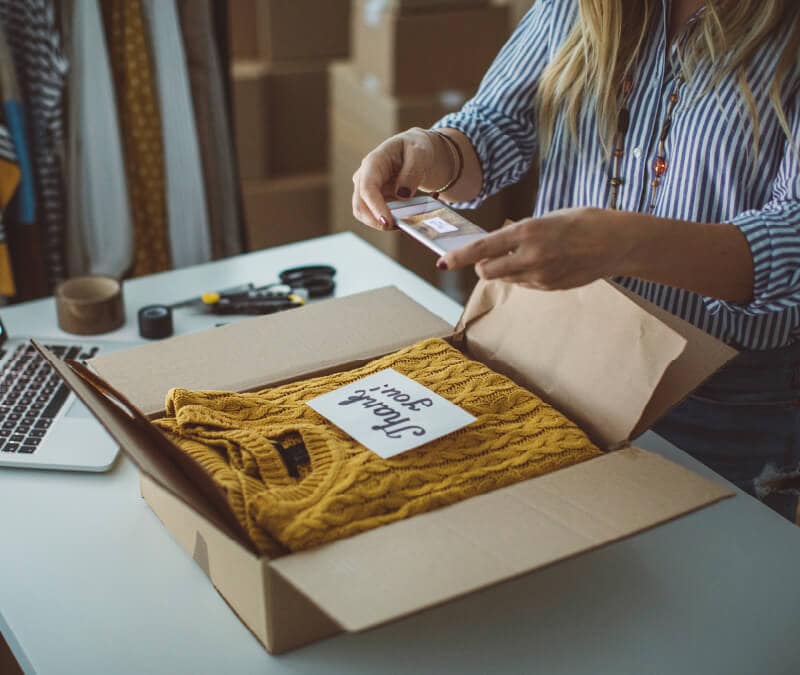Is Shein legit? What you should know before shopping
Shein is a legitimate e-commerce platform, but it’s sometimes criticized for selling low-quality products and engaging in shady business practices. Learn more about shopping safely on Shein, then get AI-powered scam detection that can help you avoid dangerous fake websites impersonating real shopping platforms.

You’ve probably run across Shein ads while shopping online or browsing influencer posts on social media. It’s one of the most popular fast fashion retailers, with the Shein app ranking as the second most downloaded shopping app worldwide in 2024. But despite its popularity, the platform has attracted its fair share of controversy.
Here’s everything you need to know about Shein before making a purchase.
Is Shein safe?
Shein is generally safe to order from. The platform uses advanced security technologies to protect buyers’ data, and it has a U.S.-based privacy office committed to ensuring compliance with data protection laws and handling customer privacy concerns. Shein clearly states that it doesn’t sell or share customer data with anyone.
Safety strategies Shein uses to protect customer data include the following:
- SSL/TLS encryption: Shein uses industry-standard SSL (Secure Socket Layer) encryption to protect personal data and payment information during transmission.
- Secure payment methods: The platform supports trusted payment options like PayPal and major credit cards, reducing fraud risk.
- Two-factor authentication: Shein offers two-factor authentication (2FA) to add an extra layer of account protection during login, making it much more difficult for hackers to get into your account if they get hold of your email and password.
- Security practices aligned with governing standards: Shein aligns its data security policies with global standards set by the International Standards Organization, the National Institute of Standards and Technology, and the Payment Card Industry’s Digital Security Standards.
4 risks of shopping on Shein
While Shein is generally safe to buy from, there are still some risks to be aware of, as with any online platform. The main ones to note are low-quality items, counterfeit products, data privacy concerns, and the chance of accidentally visiting a fake website posing as Shein.
1. Quality issues
Shein often sells items that customers perceive to be low-quality. Many products feature flimsy fabrics, poor stitching, inconsistent sizing, and look noticeably different from the photos online. These issues are common across many ultra-fast fashion brands because they focus on producing large volumes of clothing quickly and cheaply.
As a result, quality control isn’t usually the priority, and many customers report receiving items that don’t meet their expectations. TikTok is full of humorous videos of users comparing the garment they ordered on Shein with the one they received, although many other TikTokers are thrilled with their cheap Shein hauls.
2. Counterfeit products
While Shein claims its suppliers must certify their products aren’t counterfeit, the platform has faced multiple accusations of selling knockoff goods.
For example, Coach filed a lawsuit in March 2025 alleging that Shein was liable for trademark infringement and selling counterfeit Coach items. A similar issue occurred with Oakley, the sunglasses brand, which accused Shein of stealing its designs and selling copycat items. While Shein agreed to stop selling designs owned by Oakley, it resumed selling the very same problematic items the following year.
Shein has been involved in other legal disputes with major fashion brands like Ralph Lauren and Deckers (which owns UGG, HOKA, Teva, and other popular brands).
3. Data privacy risks
Shein collects personal data and payment information, such as your browsing behavior and location. While this helps personalize your shopping experience, it can also raise privacy concerns.
Even companies with strong security measures can still experience data breaches. Any personal or financial information you disclose could therefore technically be exposed by a cybercriminal and sold on the dark web.
In 2018, Shein’s parent company, Zoetop, experienced a major breach that compromised the login details, email addresses, and credit card information of nearly 39 million Shein users, resulting in a $1.9 million fine.
Most companies will eventually warn you if your sensitive data has been leaked, but they’re not always in a hurry to do so. In the meantime, personal information like your passwords and login credentials can end up circulating on the dark net.
Dark web monitoring§ tools, included with Norton 360 Deluxe, can help mitigate these risks. We’ll notify you if we find your data exposed, so that you can take action to secure compromised accounts. It also comes with an AI-powered scam assistant to help you avoid suspicious websites.
4. Fake Shein websites
Some cybercriminals create Shein impersonation websites that mimic the look and feel of the official site. This insidious practice is called website spoofing.
These fake sites can appear in search engine results, social media ads, or links shared through emails and text messages. They are often carefully designed to look highly convincing. Unsuspecting users who don’t yet use Safe Web tools may click them, thinking they are visiting the real Shein website.
These sites trick you into entering sensitive information like login credentials, credit card numbers, and other personal data. Cybercriminals can then use your credit card information to make unauthorized purchases or use your personal information to commit identity theft.
Why Shein is controversial
Although Shein is a go-to for trendy fashion at rock-bottom prices, the brand has also faced its share of controversy. Here’s a closer look at common concerns some shoppers have about buying from Shein.
Sustainability
Shein’s fast fashion model has a major environmental impact. In 2023, it emitted 16.7 million metric tons of carbon dioxide — more than what four coal power plants cough up yearly, making it the highest-emitting brand in the fashion industry. Most of its fabrics come from polyester, a material linked to microplastic pollution, with only a small portion coming from recycled sources.
To help combat its environmental impact, the company has pledged to cut carbon emissions by 25% by 2030 and reach net zero by 2050. It has also promised to use more recycled materials, but experts remain skeptical about the effectiveness of these efforts given Shein’s need for rapid production.
Child labor
Shein has faced ongoing criticism for its labor practices, including poor working conditions, long hours, and low pay in its supply chain. In recent years, the company has been accused of using forced labor, including reports involving the Uyghur minority group in China.
In 2024, Shein uncovered two instances of child labor in its supply chain. In response, it suspended orders from these suppliers, terminated contracts with those employing underage workers, and updated its policies.
Intellectual property issues
Shein has faced repeated accusations of copying designs from small businesses, with Cassey Ho, founder of the activewear brand Popflex, being one of the most vocal critics.
Ho has called out Shein for stealing several of her designs, including activewear pieces such as the “Hiking Superskort” and “Bungee Sklegging.” Despite previous promises from Shein to desist, Ho claims the company has continued to sell near-identical versions of her designs.
In turn, Shein says it has policies to prevent design theft; it requires suppliers to confirm the originality of their submissions and implement internal review processes.


How to shop safely on Shein
While Shein has faced its share of controversies, it remains a generally trustworthy platform, and it has taken steps to address customer concerns. Nevertheless, you should take the following precautions when shopping on Shein or any other online retailer for safer online shopping.
- Stick to secure payment methods: Use trusted options like PayPal or credit cards to better protect yourself from fraud and make it easier to dispute unauthorized charges.
- Enable two-factor authentication: Adding an extra layer of security to your account helps protect your personal information from hackers, even if your password is compromised.
- Watch out for fake websites: Website spoofing is worryingly common — double-check the URL and ensure it begins with HTTPS to avoid entering sensitive info on scam sites.
- Don’t fall for phishing attacks: Be cautious of unsolicited emails or messages claiming to be from Shein asking for your login details or payment info. Legitimate companies won’t request this kind of sensitive data out of the blue.
Shop safely online using Norton 360 Deluxe
Despite some past controversies, Shein is a legit platform that’s mostly safe to shop from. Unfortunately, copycat scam sites — designed to look real and steal your personal info — are a persistent threat. And with AI making these fakes harder to spot, staying safe online takes more than a quick glance.
Norton 360 Deluxe uses advanced, AI-powered scam detection to help block fake websites that mimic Shein and other popular retailers. Shop more confidently using cybersecurity software that can outsmart sophisticated online scams.
FAQs
What is Shein’s return policy?
Shein allows returns on most items within 30 days of delivery, provided they are in new, unworn condition with original tags. The first return per order is free; subsequent returns from the same order incur a $7.99 shipping fee — roughly what the average Shein item costs in the first place.
Why is stuff from Shein so cheap?
Shein keeps prices low by using a fast fashion model, producing in bulk, relying on low-cost labor, minimizing marketing costs through social media, and skipping traditional retail third parties.
Why do shoppers like Shein?
Shoppers like Shein for its trendy styles, wide selection, low prices, and frequent new arrivals that keep up with the latest fashion.
Is Shein safe for credit cards?
Yes, Shein is generally safe for credit card payments. It uses secure payment methods, including SSL encryption, to protect your payment details.
Is the Shein app safe?
Yes, the Shein app is generally safe to use. It employs security measures like SSL encryption to protect your personal and payment information during transactions. Additionally, Shein offers secure payment options like PayPal, minimizing the risk of exposing your financial details.
What personal information does Shein collect?
Shein collects personal information, including browsing behavior and location, to personalize the shopping experience.
Does Shein sell your information?
Shein’s privacy policy states that the company does not sell or share customer data with third parties.
§ Monitoring not available in all countries and varies based on region.
Shein is a trademark of Roadget Business PTE. LTD.
Editorial note: Our articles provide educational information for you. Our offerings may not cover or protect against every type of crime, fraud, or threat we write about. Our goal is to increase awareness about Cyber Safety. Please review complete Terms during enrollment or setup. Remember that no one can prevent all identity theft or cybercrime, and that LifeLock does not monitor all transactions at all businesses. The Norton and LifeLock brands are part of Gen Digital Inc.









Want more?
Follow us for all the latest news, tips, and updates.